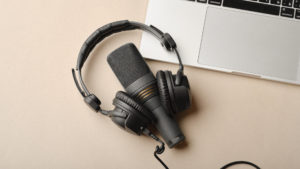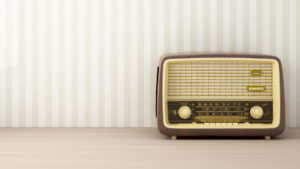XLR microphones have been a go-to option for professional podcasters and audio engineers for years. They offer superior sound quality and greater versatility compared to USB microphones. However, there are also some disadvantages to consider when it comes to using an XLR microphone for podcasting. Let’s take a closer look at the advantages and disadvantages of XLR microphones for podcasting.
XLR microphones have long been the preferred choice for professional podcasters and audio engineers, and for good reason. They offer a range of advantages that make them a valuable investment for anyone looking to create high-quality audio content. Let’s take a look at the advantages of using an XLR microphone for podcasting.
Advantages of XLR Microphones for Podcasting:
Superior Sound Quality
One of the most significant advantages of using an XLR microphone for podcasting is the superior sound quality they provide. XLR microphones offer a wider frequency response range and greater dynamic range, which means they can capture more detail and nuances in the sound. This is particularly important for podcasters who want their listeners to have the best possible listening experience.
Customization and Control
XLR microphones also offer greater customization and control over your sound. They typically include features such as gain control, high-pass filters, and multiple polar patterns (cardioid, figure-8, and omnidirectional). These features allow you to fine-tune your sound and make adjustments to suit your recording environment and preferences.
Versatility
XLR microphones are incredibly versatile and can be used for a range of recording situations and environments. They work well for podcasting, but they are also ideal for recording music, voiceovers, and other types of audio content. Additionally, XLR microphones can be used with other audio equipment such as mixers, amplifiers, and audio processors, which makes them a valuable investment for any podcaster or audio professional.
Expandability
Another advantage of using an XLR microphone for podcasting is the expandability they offer. XLR microphones require an audio interface to connect to your computer, which allows for greater flexibility and expandability. You can upgrade or replace the audio interface as needed, which means you can continue to use your XLR microphone as your podcasting needs evolve.
Durability
Finally, XLR microphones are typically more durable than USB microphones. They are designed to withstand the wear and tear of regular use and are less likely to break or malfunction over time. This is particularly important for podcasters who rely on their equipment to produce consistent, high-quality audio content.
XLR microphones offer a range of advantages that make them a valuable investment for any podcaster or audio professional. They provide superior sound quality, customization and control, versatility, expandability, and durability. While they may be more expensive and require more set-up than USB microphones, the benefits they offer make them well worth the investment for anyone looking to create the best possible audio content.
While XLR microphones offer a range of advantages for podcasters and audio professionals, there are also some disadvantages to consider. Let’s take a look at the disadvantages of using an XLR microphone for podcasting.
Disadvantages of XLR Microphones for Podcasting:
Cost
One of the biggest disadvantages of using an XLR microphone for podcasting is the cost. XLR microphones can be significantly more expensive than USB microphones, and you also need to purchase an audio interface to connect the microphone to your computer. This can make it more challenging for beginners or hobbyist podcasters to invest in high-quality equipment.
Set-up
Another disadvantage of using an XLR microphone for podcasting is the set-up. XLR microphones require additional equipment, such as an audio interface, XLR cables, and a mic stand, which can make the set-up more complex and time-consuming than USB microphones. This can be a disadvantage for podcasters who want a quick and easy setup.
Portability
XLR microphones are typically larger and heavier than USB microphones, which can make them less portable. If you need to record on the go, an XLR microphone may not be the best option. Additionally, XLR microphones require a power source, which means you need to be near an electrical outlet to use them.
Compatibility
Another disadvantage of using an XLR microphone for podcasting is compatibility. XLR microphones are not compatible with all audio interfaces, which can limit your options when it comes to upgrading or replacing your equipment. Additionally, some audio interfaces may not provide enough power to properly drive the microphone, which can result in poor sound quality.
Noise
Finally, XLR microphones can be more susceptible to noise than USB microphones. XLR cables are more prone to interference from other electronic devices and can pick up noise from the environment. This means you need to be careful when setting up your recording environment to minimize noise interference.
While XLR microphones offer superior sound quality, customization and control, versatility, expandability, and durability, they also have some disadvantages. XLR microphones can be more expensive, have a more complex set-up, be less portable, have compatibility issues, and be more susceptible to noise interference. Before investing in an XLR microphone, it’s important to consider both the advantages and disadvantages to determine if it’s the right option for your podcasting needs.
XLR microphones offer superior sound quality and greater versatility compared to USB microphones. They are ideal for professional podcasters who want to achieve the best possible sound quality and have more control over their recordings. However, they do require more set-up and preparation, and can be more expensive than USB microphones. Ultimately, the choice between XLR and USB microphones will depend on your needs and budget as a podcaster.
For more on microphones, check out THE ADVANTAGES AND DISADVANTAGES TO USB MICROPHONES FOR PODCASTING where we explore the USB microphone.






